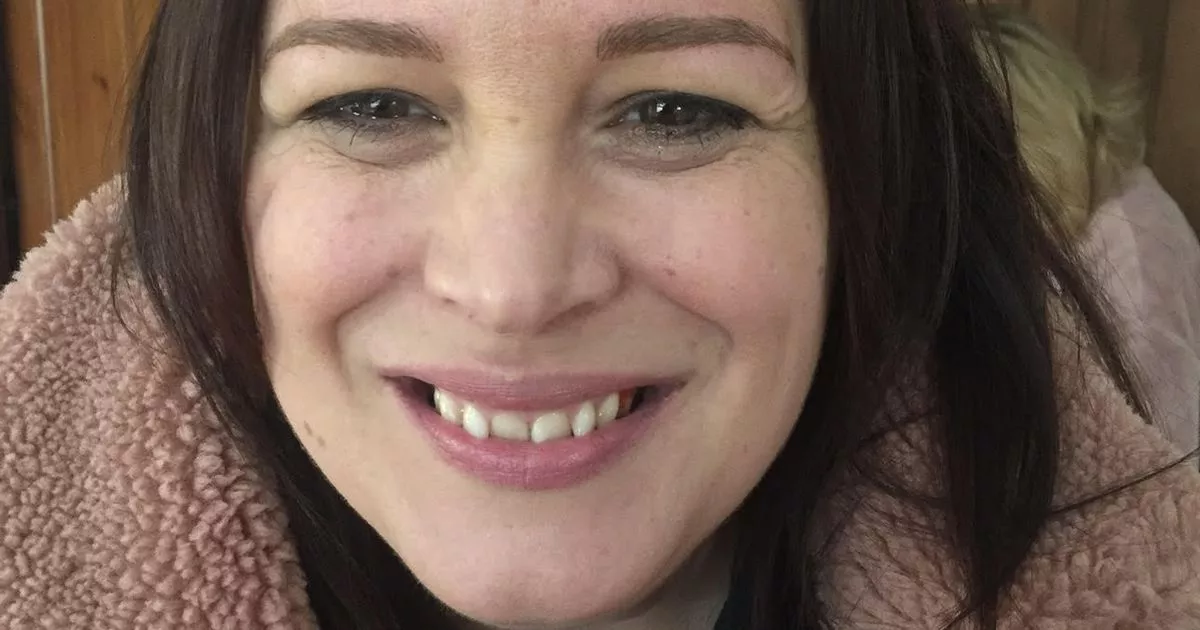Jenny ignored the symptoms when they first appeared on holiday, but started taking pictures in the toilet
Neil Shaw Assistant Editor
07:14, 22 Aug 2025Updated 08:28, 22 Aug 2025
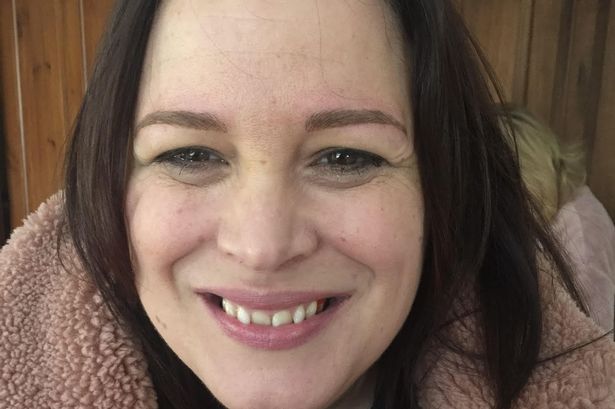 Jenny Duncan was on holiday in Lanzarote in 2019 when she first noticed symptoms(Image: Jenny Duncan/Cover Images)
Jenny Duncan was on holiday in Lanzarote in 2019 when she first noticed symptoms(Image: Jenny Duncan/Cover Images)
A fit and healthy 45-year-old woman ignored it when she found blood on her toilet paper while on holiday in Lanzarote. Jenny Duncan was about to start a new job as an assistant head teacher and just wanted to get on with her relaxing break – ignoring the idea something could be wrong.
Jenny said: “I was only 45, and I thought bowel cancer was something that only happened to older men.” But the symptoms continued, Jenny added: “I noticed that I got a sharp pain in my tummy too, but I thought, it’s probably just piles and got on with things.”
Jenny, from Hull, had also been dealing with excessive bloating and wind after meals, but with a hectic work schedule and irregular eating habits, she chalked it up to stress. “I was very tired, but I thought that was just due to the pressures of work,” she says.
“I used to come home late and get straight back to work. I’m not really one to visit the doctor so I just chose to ignore it. I was probably a bit embarrassed too; poo and bums – you just don’t really want to go there, do you? I think deep down, I just hoped it would go away.”
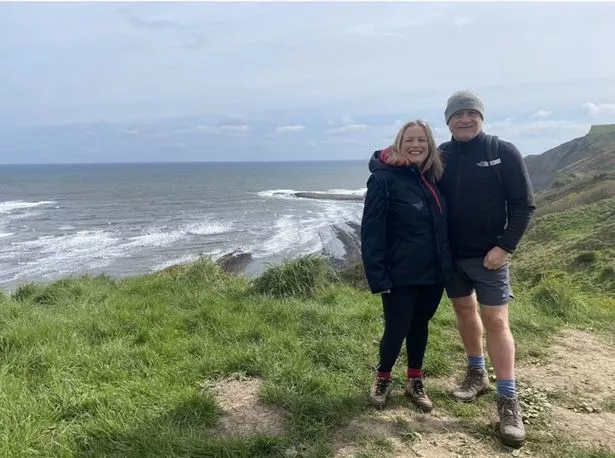 Jenny Duncan was on holiday in Lanzarote in 2019(Image: Jenny Duncan/Cover Images)
Jenny Duncan was on holiday in Lanzarote in 2019(Image: Jenny Duncan/Cover Images)
But the symptoms didn’t go away; they worsened. When the mother-of-three began seeing blood in the toilet bowl regularly, she started taking photos of her poo to track it. One night in October, while scrolling through her phone in bed, her husband Stuart spotted one.
“He said: ‘What on earth? We need to get you some help’. And because he is normally so calm and measured, I knew I had to do something,” she says.
By then, Jenny was going to the toilet five times a day, each time accompanied by blood. Though she tried to stay upbeat, she knew something was seriously wrong. At a GP appointment soon after, her doctor initially said she was probably too young for bowel cancer. But when Jenny showed the photos, she was referred to a specialist.
At the end of October 2019, Jenny was diagnosed with stage 3 bowel cancer. “It was horrific, but it wasn’t a surprise to me. I was absolutely terrified that I was going to die. I’d never experienced such a feeling of utter despair,” she says.
On New Year’s Day 2020, as Covid loomed over the UK, Jenny began an isolating and a gruelling round of chemotherapy that left her gravely ill. She underwent surgery to remove the tumour in March, followed by further chemotherapy in June. “I’ve never felt so alone in my life as when I was in hospital during Covid. Nobody could come and visit me, nobody could come near me. I’d had a huge operation and I just felt this black, dark feeling.”
Jenny lost her hair, suffered rashes from the medication, and felt utterly sick and exhausted. After her treatment at her local Castle Hill Hospital, it seemed the surgery had been successful, until January 2022, when she was told the cancer had spread to her lymph nodes and was now incurable.
“I absolutely lost it. I was crying and I kept telling Stuart ‘I’m going to die, I’m going to die’. I withdrew for a few days, didn’t want to see anybody,” says Jenny. But then, after a few days in bed, I bounced back. I thought, well I’m not dying now, so what am I going to do? And I went back to work.”
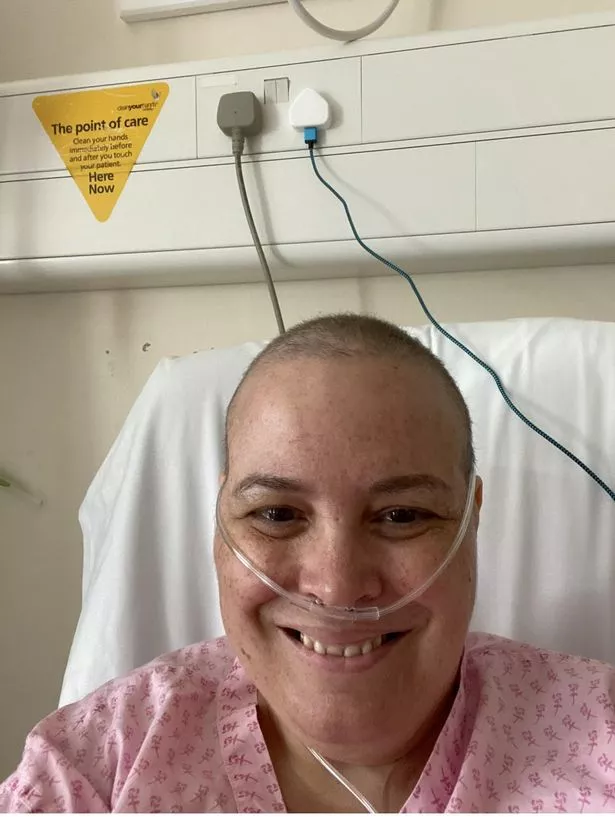 Jenny in April 2020 at Castle Hill Hospital a few days after surgery(Image: Jenny Duncan/Cover Images)
Jenny in April 2020 at Castle Hill Hospital a few days after surgery(Image: Jenny Duncan/Cover Images)
Jenny now lives with incurable Stage 4 bowel cancer. As she doesn’t tolerate chemotherapy well, scans are carried out every three to six months, with treatment resuming only when her quality of life declines. In the meantime, she throws herself into her work, cherishes time with her three adult sons, Joseph, 26, and twins Matthew and James, 24, and appreciates the small joys of daily life.
“It’s been three years since my operation and I’ve been very lucky. I socialise, I work. I do get tired, but I certainly have a life. I am just grateful for every day, as tomorrow isn’t promised to any of us,” says Jenny. “I try not to dwell on the future. I’ve processed everything now and made my peace with it. At times I do think, will I see my children marry? Will I be a grandma? Will I retire? That gets me frightened, so I just try not to think about it. Instead I focus on today. I feel grateful for my family, for my job, and I take my stride now. I’m much more present.”
Now Jenny is sharing her story to encourage others to take action if they spot unusual symptoms – especially when it comes to something we often avoid talking about. “I do regret not going to the doctor straight away. I could kick myself for letting it go on so long. But I didn’t know that bowel cancer could affect someone in their forties. If I’d have known my poo and looked back and not been embarrassed and paid more attention to my body, would I then have got help sooner and would I be in this position now? I don’t know.
“I buried my head in the sand. Now, if anyone tells me they are worried about something, I tell them to go to the GP. Don’t ignore it. Acting quickly could save your life.”
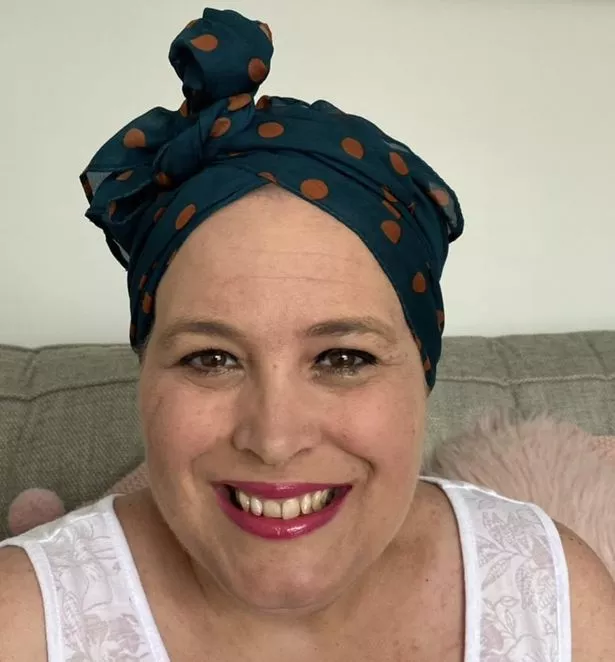 Jenny had to undergo cancer therapy(Image: Jenny Duncan/Cover Images)
Jenny had to undergo cancer therapy(Image: Jenny Duncan/Cover Images)
A new campaign by Andrex, in partnership with Bowel Cancer UK, encourages the nation to look back and track their poo and get to know what’s normal for them, as one in four Brits admit they rarely, or never check their habits.
Dr Sandi Mann, from Bowel Cancer UK, says: “The main symptoms to watch out for when tracking your poo are: bleeding from your bottom or blood in your poo, a change in your pooing habits (you might be going more or less often, or have diarrhoea or constipation that might come and go), losing weight but you’re not sure why or feeling very tired all the time but you’re not sure why, or a pain or lump in your tummy.
“Having these symptoms doesn’t always mean you have bowel cancer, but it’s still important to find out what’s causing them. Even if you have just one of these, ask your GP for a simple test you can do at home.”
